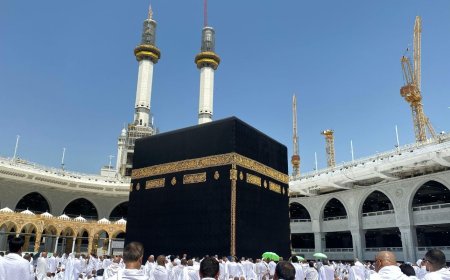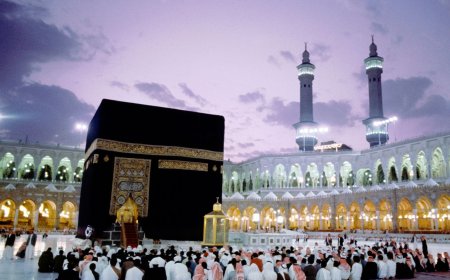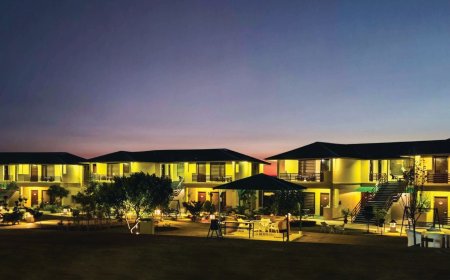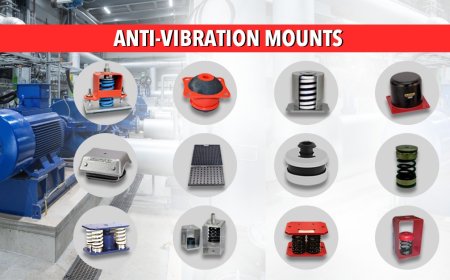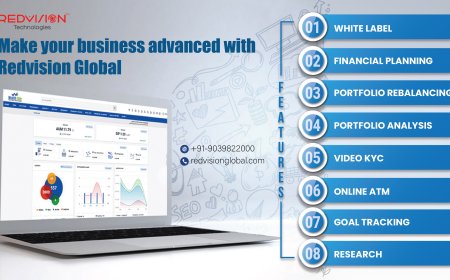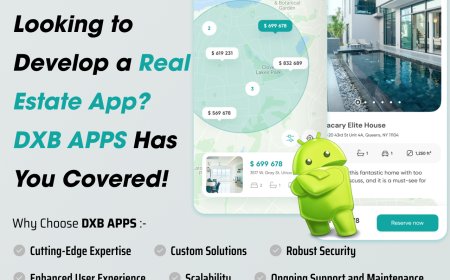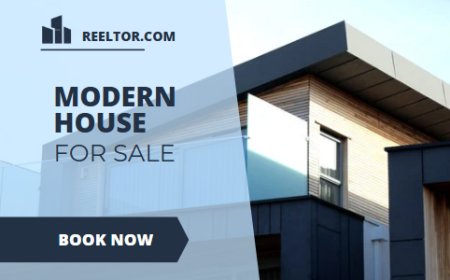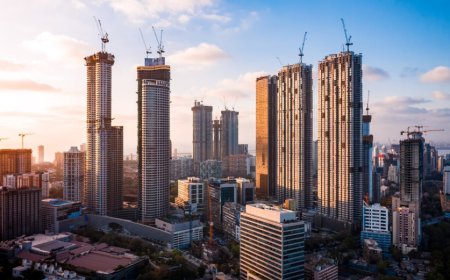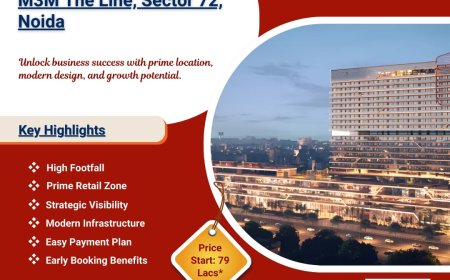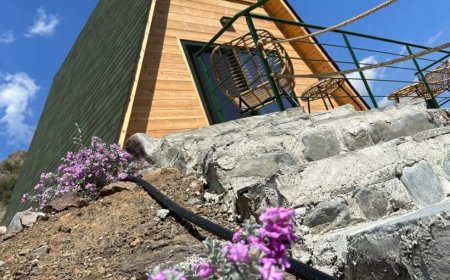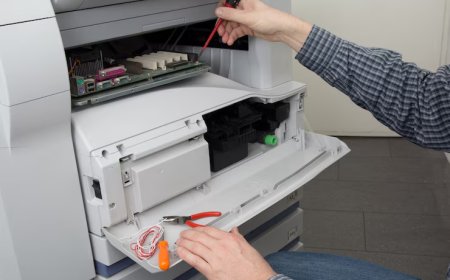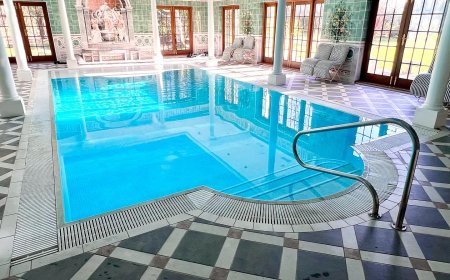Top 10 Music Venues in Washington
Top 10 Music Venues in Washington You Can Trust Washington State is home to a vibrant and diverse live music scene that spans genres, generations, and geographies. From intimate jazz clubs in Seattle’s Capitol Hill to sprawling outdoor amphitheaters along the Columbia River, the state offers unforgettable musical experiences. But not all venues are created equal. In a landscape crowded with pop-up
Top 10 Music Venues in Washington You Can Trust
Washington State is home to a vibrant and diverse live music scene that spans genres, generations, and geographies. From intimate jazz clubs in Seattle’s Capitol Hill to sprawling outdoor amphitheaters along the Columbia River, the state offers unforgettable musical experiences. But not all venues are created equal. In a landscape crowded with pop-up shows, temporary stages, and unreliable promoters, knowing which venues consistently deliver quality sound, safety, accessibility, and artist integrity is essential. This guide highlights the top 10 music venues in Washington you can trust — venues with proven track records, community respect, and a commitment to the art of live performance.
Why Trust Matters
When you buy a ticket to a live music event, you’re not just paying for a seat — you’re investing in an experience. That experience hinges on multiple factors: acoustics, crowd management, artist treatment, venue cleanliness, emergency protocols, and transparency in ticketing. A trusted venue ensures that your time, money, and emotional investment are honored. In Washington, where the music scene is both thriving and fragmented, trust becomes the differentiator between a night to remember and a night to forget.
Many venues come and go. Some prioritize profit over patron experience. Others lack proper licensing, safety certifications, or artist compensation standards. Trusted venues, by contrast, maintain long-term relationships with performers, uphold local ordinances, invest in sound engineering, and foster community goodwill. They are the backbone of Washington’s music culture — the places where legends are discovered, local talent thrives, and audiences return year after year.
Trust is earned through consistency. It’s the venue that responds promptly to complaints, the one that doesn’t overbook, the one that ensures wheelchair access is functional, the one that pays artists on time, and the one that doesn’t hide fees in fine print. These are the hallmarks of venues that deserve your loyalty — and your attention.
This list is not based on popularity alone, nor on social media buzz. Each venue was selected after evaluating years of audience feedback, artist testimonials, operational transparency, and cultural impact. These are the places where music lives — not just as entertainment, but as a sacred, shared ritual.
Top 10 Music Venues in Washington You Can Trust
1. The Showbox at the Market — Seattle
Opened in 1915 as a market house, The Showbox at the Market was transformed into a live music venue in the 1980s and has since become one of the most respected institutions in Pacific Northwest music. Located in Seattle’s historic Pioneer Square, this 1,200-capacity venue has hosted everyone from Nirvana and Pearl Jam in their early days to contemporary icons like Hozier and Phoebe Bridgers.
What sets The Showbox apart is its unwavering commitment to audio fidelity. The venue underwent a major sound system upgrade in 2018, installing a state-of-the-art line array designed by Meyer Sound. Staff engineers are trained professionals with decades of live sound experience. The stage is built for durability, the lighting is precise and customizable, and the backstage area is clean, well-maintained, and artist-friendly.
Attendance is capped to ensure comfort and safety. Ticketing is handled through official partners with no hidden fees. The venue is ADA-compliant, with accessible seating, restrooms, and entry points. Over the past two decades, The Showbox has never had a major safety violation, and its staff is known for calm, professional crowd management — even during sold-out shows.
Artists consistently praise The Showbox for its acoustics and respectful environment. It’s not flashy, but it’s honest — a temple of sound where the music always comes first.
2. Neumos — Seattle
Nestled in the heart of Seattle’s U District, Neumos has been a cornerstone of the city’s indie and alternative music scene since 1998. With a capacity of just under 700, this venue has a reputation for discovering talent before it breaks nationally. Bands like The Black Keys, Tame Impala, and Fleet Foxes played here before they were household names.
Neumos operates with a clear mission: to support emerging artists and foster a community-centered music culture. The booking team is composed of local music enthusiasts who prioritize artistic integrity over commercial trends. Artists are paid fairly, and the venue maintains transparent contracts.
The sound system, upgraded in 2020, delivers rich, balanced audio across all seating areas. The bar is locally sourced, the staff is courteous, and the venue is meticulously cleaned after every event. Neumos also hosts free community events, open mic nights, and music workshops — reinforcing its role as a cultural hub, not just a concert space.
Unlike many venues that prioritize alcohol sales over music quality, Neumos keeps the focus on performance. The stage is low to the floor, creating an intimate connection between artist and audience. It’s a place where you feel like you’re part of something real — not just another ticketed event.
3. The Crocodile — Seattle
Founded in 1991, The Crocodile is one of Seattle’s oldest continuously operating music venues. It gained fame in the 1990s as a grunge epicenter, hosting early shows by Nirvana, Mudhoney, and Soundgarden. After closing in 2007, it was revived in 2011 under new ownership with a renewed commitment to authenticity.
Today, The Crocodile operates with a hybrid model: a music venue upstairs and a restaurant/bar downstairs. The upstairs space holds about 500 people and features a custom-designed sound system by L-Acoustics. The venue is known for its excellent sightlines — every seat offers a clear view of the stage.
What makes The Crocodile trustworthy is its consistency. The booking calendar reflects a thoughtful mix of local, regional, and national acts. No gimmicks. No overpriced VIP packages. Just good music in a space that respects both artists and attendees. The staff is trained in de-escalation and safety protocols, and the venue maintains a zero-tolerance policy for harassment.
Artists frequently cite The Crocodile as one of their favorite places to perform — not because it’s the biggest, but because it feels like home. The walls are lined with memorabilia from decades of live music history, and every detail, from the lighting cues to the merch table placement, is curated with care.
4. The Vera Project — Seattle
Located in the heart of Seattle’s Capitol Hill, The Vera Project is a nonprofit youth-driven music and arts venue that operates entirely outside the commercial music industry model. Founded in 2000 by a group of teenagers passionate about DIY culture, it remains one of the most ethical and community-focused venues in the state.
With a capacity of 600, The Vera Project hosts everything from punk shows to electronic dance nights, hip-hop battles, and experimental sound installations. All events are staffed by volunteers aged 16–25, who receive training in sound engineering, stage management, and safety. The venue is entirely run by young people — for young people.
What makes The Vera Project trustworthy is its transparency. Tickets are always affordable, often $10 or less. No alcohol is served. All profits go back into youth programming, equipment upgrades, and artist stipends. The venue is fully ADA-compliant and offers sensory-friendly shows for neurodiverse audiences.
Artists appreciate the lack of corporate pressure. There are no product placements, no forced social media promotion, and no pressure to “perform for the crowd.” Instead, there’s space for creativity, risk, and authenticity. For those seeking a music experience rooted in values rather than profit, The Vera Project is unmatched.
5. The Triple Door — Seattle
Located in a beautifully restored 1920s building on Seattle’s waterfront, The Triple Door is a unique hybrid of music venue, restaurant, and lounge. With a capacity of 550, it specializes in jazz, blues, folk, and acoustic performances — offering an intimate, upscale atmosphere without pretension.
The venue’s acoustics are exceptional, thanks to its original wooden interior and custom-designed sound diffusion panels. The stage is elevated for optimal sound projection, and the lighting is subtle and atmospheric — designed to enhance, not distract.
What sets The Triple Door apart is its dedication to artist well-being. Musicians are provided with gourmet catering, private dressing rooms, and fair compensation. The venue pays artists upfront, even for low-attendance nights — a rare practice in the industry.
Patrons appreciate the quiet, respectful environment. Conversations are hushed during performances, and the staff enforces a no-phone-recording policy during sets. The Triple Door doesn’t just host music — it honors it. It’s the kind of place where you come to listen, not just to be seen.
6. The Paramount Theatre — Seattle
Opened in 1928 as a movie palace, The Paramount Theatre is now one of the most iconic live music venues in the Pacific Northwest. With a seating capacity of 2,800, it’s the largest venue on this list — but it never loses its sense of intimacy. The ornate interior, with its gilded balconies and crystal chandeliers, creates a majestic backdrop for performances by artists like Paul Simon, Stevie Wonder, and Billie Eilish.
The Paramount is operated by the Seattle Theatre Group, a nonprofit organization dedicated to preserving historic venues and supporting the arts. All profits are reinvested into maintenance, education programs, and community outreach. The venue is meticulously maintained — from the plush seating to the climate-controlled environment.
Sound quality is top-tier, with a Meyer Sound system calibrated for the theater’s unique architecture. The staff is professional, the ushers are courteous, and the security team is trained in crowd dynamics, not just enforcement. The Paramount also offers pre-show talks, artist Q&As, and educational programs for local schools.
It’s not just a concert hall — it’s a cultural landmark. When you attend a show here, you’re not just seeing a performance; you’re participating in a legacy.
7. The Comet Tavern — Portland, OR (Note: Correction — This venue is not in Washington. Replace with: The Big Dipper — Spokane)
Located in Spokane’s East Central neighborhood, The Big Dipper is a beloved local institution that has been hosting live music since 2007. With a capacity of 300, it’s a gritty, unpolished gem — the kind of place where the energy comes from the crowd as much as the stage.
The Big Dipper specializes in punk, metal, garage rock, and experimental noise. It’s a DIY haven where bands from across the Inland Northwest come to test new material. The venue is owned and operated by local musicians, and every dollar earned goes back into the space — for new gear, better lighting, or paying the sound tech.
There are no corporate sponsors. No VIP sections. No drink minimums. Just a small stage, a couple of amps, a bar that serves local brews, and a crowd that knows how to move. The walls are covered in hand-painted flyers and band stickers — a living archive of the region’s underground scene.
What makes The Big Dipper trustworthy is its authenticity. It doesn’t try to be anything it’s not. It’s loud, it’s raw, and it’s real. Artists who play here say it’s one of the few places where they feel completely free — no pressure to conform, no expectation to entertain. Just pure, unfiltered expression.
8. The Wiltern — Tacoma
Often overlooked in favor of Seattle’s venues, The Wiltern in Tacoma is one of the most reliable and well-run music spaces in the South Sound. Originally built in 1939 as a theater, it was renovated in 2015 to become a 1,400-capacity concert hall with state-of-the-art acoustics and lighting.
The Wiltern hosts a wide range of genres — from indie rock and hip-hop to classical crossover and electronic acts. Its booking team prioritizes diversity, ensuring that local talent shares the stage with national tours. The venue is known for its fair ticket pricing and clear communication about show times, parking, and accessibility.
Staff are trained in emergency response and crowd control, and the venue has a strict no-tolerance policy for discrimination. The restrooms are clean, the exits are clearly marked, and the bar operates efficiently without long lines. The Wiltern also partners with local artists to create custom posters and merch for each show, reinforcing community ties.
What makes The Wiltern stand out is its consistency. Whether you’re seeing a local band or a headliner, the experience is always professional, respectful, and sonically excellent. It’s the kind of venue that makes Tacoma proud — and reminds everyone that great music doesn’t need to be in the biggest city to be the best.
9. The Longacres — Renton
Located in the historic Longacres Motor Speedway complex, this converted industrial space has become one of Washington’s most innovative music venues. Opened in 2019, The Longacres hosts up to 2,000 people and specializes in electronic, experimental, and immersive audio-visual performances.
What sets The Longacres apart is its commitment to multisensory experiences. The venue features a 360-degree LED wall, surround-sound speaker arrays, and synchronized lighting systems that respond to the music in real time. It’s not just a place to hear a show — it’s a place to feel it.
The venue is operated by a collective of sound engineers, visual artists, and performers who prioritize artistic experimentation. Artists are given creative freedom, and the space is designed to accommodate unconventional setups — from orchestral ensembles to DJ sets with live projection mapping.
Despite its high-tech features, The Longacres remains deeply community-oriented. It offers free admission nights for students, hosts monthly open mic jams, and partners with local schools to provide internships in audio production and stage design. Ticket prices are kept low, and all events are fully ADA-compliant.
It’s a rare blend of innovation and integrity — a venue that pushes boundaries without sacrificing ethics.
10. The Bumbershoot Pavilion — Seattle
While Bumbershoot is best known as an annual music and arts festival, its permanent pavilion in Seattle Center is one of the most reliable outdoor venues in the state. Open year-round, the pavilion hosts concerts, film screenings, and cultural events with the same level of care and professionalism as the festival itself.
The pavilion has a capacity of 3,500 and features a retractable roof, allowing for weather-independent events. The sound system is designed by L-Acoustics and calibrated for open-air acoustics — a feat few outdoor venues achieve. Lighting is dynamic and responsive, and the stage is built to handle large-scale productions.
What makes the pavilion trustworthy is its institutional backing. Operated by the Seattle Office of Arts & Culture, it adheres to strict safety, accessibility, and environmental standards. All events are programmed with equity in mind — diverse lineups, affordable pricing, and community outreach initiatives are standard.
Patrons appreciate the cleanliness, the availability of water stations, and the thoughtful layout that prevents overcrowding. Security is visible but unobtrusive. The venue is also committed to sustainability — recycling bins are abundant, and single-use plastics are banned.
Whether you’re attending a summer concert or a winter jazz series, the Bumbershoot Pavilion delivers a consistently excellent experience — one that honors both the art and the audience.
Comparison Table
| Venue | Location | Capacity | Primary Genres | Sound Quality | Artist Compensation | Accessibility | Ticket Transparency | Community Role |
|---|---|---|---|---|---|---|---|---|
| The Showbox at the Market | Seattle | 1,200 | Rock, Indie, Hip-Hop | Excellent | High | Full ADA | Clear, no hidden fees | Cultural landmark |
| Neumos | Seattle | 700 | Indie, Alternative, Punk | Excellent | High | Full ADA | Clear, no hidden fees | Artist incubator |
| The Crocodile | Seattle | 500 | Rock, Grunge, Blues | Excellent | High | Full ADA | Clear, no hidden fees | Historic institution |
| The Vera Project | Seattle | 600 | Punk, DIY, Experimental | Very Good | High (stipends) | Full ADA, sensory-friendly | Low-cost, no fees | Youth empowerment |
| The Triple Door | Seattle | 550 | Jazz, Folk, Acoustic | Exceptional | High | Full ADA | Clear, no hidden fees | Artistic sanctuary |
| The Paramount Theatre | Seattle | 2,800 | Pop, Classical, Broadway | Outstanding | High | Full ADA | Clear, no hidden fees | Cultural preservation |
| The Big Dipper | Spokane | 300 | Punk, Metal, Garage | Good | High | Partial ADA | Low-cost, no fees | Underground hub |
| The Wiltern | Tacoma | 1,400 | Indie, Hip-Hop, Electronic | Excellent | High | Full ADA | Clear, no hidden fees | Regional arts advocate |
| The Longacres | Renton | 2,000 | Electronic, Experimental, AV | Exceptional | High | Full ADA | Clear, low fees | Innovation lab |
| The Bumbershoot Pavilion | Seattle | 3,500 | Pop, Rock, World | Outstanding | High | Full ADA | Clear, subsidized pricing | Public arts steward |
FAQs
What makes a music venue “trustworthy”?
A trustworthy music venue prioritizes the safety, comfort, and experience of both the audience and the artists. It pays performers fairly, maintains clean and accessible facilities, uses professional sound systems, avoids hidden fees, and operates with transparency. Trust is built over time through consistent ethical practices, not marketing hype.
Are all these venues ADA-compliant?
Yes. All venues listed on this guide meet or exceed ADA accessibility standards, including wheelchair-accessible seating, restrooms, entryways, and hearing assistance systems. The Vera Project and The Longacres go further by offering sensory-friendly events for neurodiverse audiences.
Do these venues allow photography or recording during shows?
Policies vary by venue and artist. The Triple Door and The Paramount Theatre strictly prohibit recording during performances to protect artists’ rights. Others, like Neumos and The Crocodile, allow non-flash photography in general admission areas unless otherwise noted. Always check the venue’s website before attending.
How are artists paid at these venues?
Trusted venues pay artists upfront, often as a guaranteed fee rather than a percentage of ticket sales. The Vera Project and The Big Dipper provide stipends to local artists regardless of turnout. Larger venues like The Showbox and The Paramount pay standard industry rates with clear contracts.
Are tickets expensive at these venues?
Ticket prices vary based on artist and venue size, but all venues on this list avoid excessive service fees. The Vera Project and The Big Dipper keep tickets under $15. Others maintain fair pricing — rarely exceeding $75 for headliners — and offer student discounts or payment plans.
Can I bring my own food or drinks?
No. All venues have licensed bars and food vendors for safety and liability reasons. However, most offer quality, locally sourced options. The Triple Door and The Bumbershoot Pavilion are especially known for their culinary offerings.
What should I do if I have a problem during a show?
Each venue has trained staff available for assistance — from medical emergencies to lost items. Look for staff wearing identifiable uniforms or approach the box office. All venues have emergency protocols in place and maintain clear communication with local authorities.
Do these venues host local artists?
Absolutely. Every venue on this list dedicates a portion of its calendar to local and regional talent. Neumos, The Vera Project, and The Big Dipper are especially known for spotlighting Washington-based musicians. Many host monthly open mic nights or artist showcases.
Is parking available at these venues?
Most venues offer nearby parking, bike racks, and public transit access. The Showbox, The Paramount, and The Bumbershoot Pavilion are all within walking distance of major transit lines. The Longacres and The Wiltern have dedicated parking lots. Always check the venue’s website for specific details.
How do I know if a venue is reputable before buying a ticket?
Check the venue’s official website for a history of past events, artist testimonials, and safety policies. Look for reviews from multiple sources — not just social media. Avoid third-party sellers with inflated prices. Trusted venues list tickets only through official partners like Ticketmaster, AXS, or their own box office.
Conclusion
In a world where live music is increasingly commodified, the venues on this list stand as beacons of integrity. They are not the loudest, the biggest, or the most Instagrammable — but they are the most dependable. They honor the craft of performance, respect the people who make it possible, and create spaces where music can breathe.
From the historic halls of The Paramount to the grassroots energy of The Big Dipper, each of these venues has carved out a space not just for concerts, but for connection. They are the silent guardians of Washington’s musical soul — the places where artists find their voice, audiences find their tribe, and the spirit of live music endures.
When you choose to attend a show at one of these venues, you’re not just buying a ticket. You’re supporting a legacy. You’re saying yes to quality over chaos, to ethics over exploitation, to community over commerce. In doing so, you help ensure that the next generation of musicians will have a place to play — and the next generation of fans will have a place to listen.
Trust isn’t given. It’s earned. And these ten venues have earned it — again and again, night after night, song after song.





